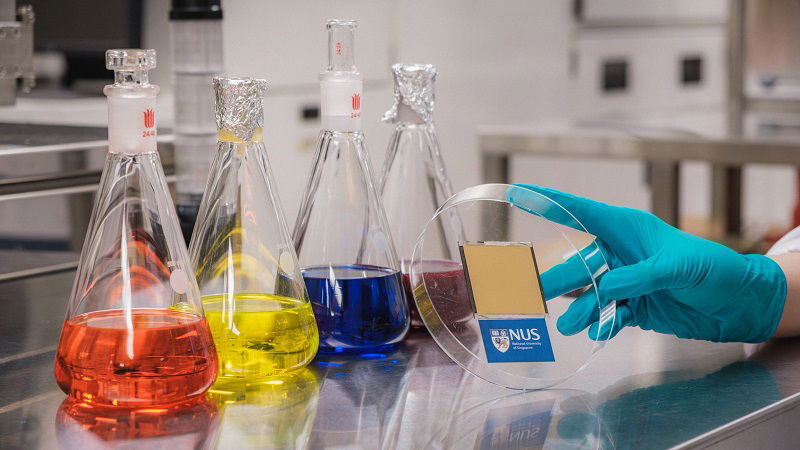Knowridge
2w
210

Image Credit: Knowridge
Scientists set new solar record with ultra-efficient tandem cell
- Scientists at NUS have achieved a new solar record with an ultra-efficient perovskite-organic tandem solar cell, reaching 26.4% power conversion efficiency over a 1 cm² area.
- The tandem cell combines perovskites and organic semiconductors to capture sunlight across different wavelengths, addressing the challenge of capturing energy from the near-infrared part of sunlight.
- The team created a new organic molecule to absorb near-infrared light effectively, enabling the efficient collection of electric charges. This breakthrough could pave the way for solar-powered wearable electronics, drones, and smart devices.
- The research, led by Assistant Professor Hou Yi, was published in Nature and aims to make the technology more stable for commercial use. These advancements bring us closer to practical solar-powered wearables.
Read Full Article
12 Likes
For uninterrupted reading, download the app